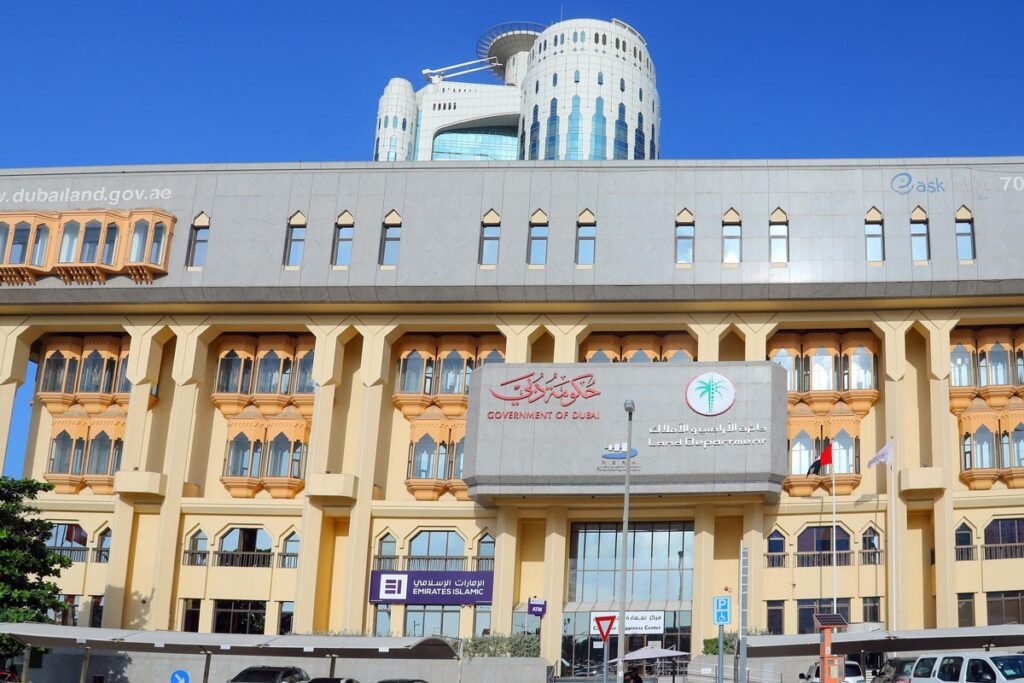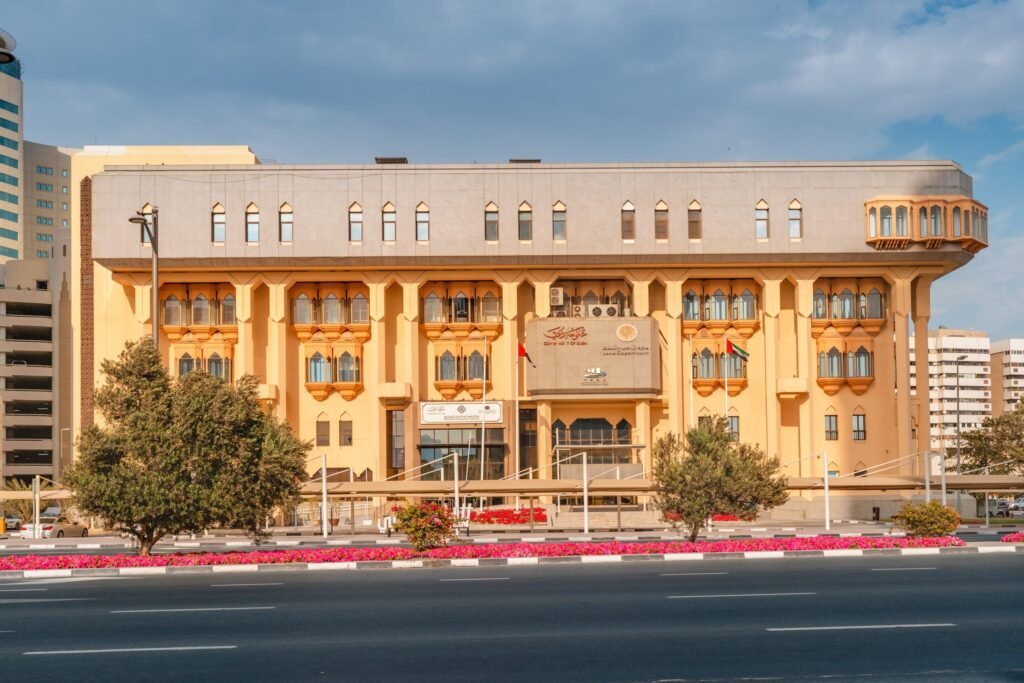Dubai has done it again. In a landmark moment that signals a new era in real estate investment, the Dubai Land Department (DLD) achieved a world-first with the instant sell-out of its tokenized property listing—a fully fractionalized real estate asset that sold out in under two minutes.
The second property in this revolutionary initiative was listed on the PRYPCO Mint platform and saw participation from nearly 150 investors across 35 countries, while over 10,000 eager buyers joined the waiting list moments later. It’s not just a sell-out—it’s a signpost for the future of global property investing.
What Exactly Is Tokenized Real Estate?
At its core, tokenized real estate breaks down a property into digital “tokens,” allowing investors to buy fractions of it instead of owning the entire property. This enables broader participation, lower entry points, and seamless trading through blockchain-backed systems.

Unlike speculative crypto ventures, this initiative is fully integrated with official land records. When someone buys a token, they’re actually purchasing a legally recognized stake in the property. Each investor receives an official Property Token Ownership Certificate issued by the Dubai Land Department—making this not just cutting-edge, but secure and lawful.
What once took weeks of paperwork, meetings, and intermediaries can now happen in a few minutes—from anywhere in the world.
From Pilot to Phenomenon
The journey began just weeks earlier with the launch of the first tokenized apartment in Business Bay. That initial offering sold out in under 24 hours, drawing hundreds of investors from more than 40 nationalities. It was a bold move—turning property into a digital asset that anyone could own, no matter where they lived.
But no one expected the second launch to sell out in less than two minutes.
The second tokenized asset, a two-bedroom apartment in Mohammed Bin Rashid City, was offered at AED 1.5 million. The minimum buy-in? AED 2,000. This meant a student in Europe or a young entrepreneur in Southeast Asia could become a co-owner of Dubai real estate with just a few hundred dollars.
The public response was electric. As demand surged, a digital waiting list crossed five figures, with investors from nearly every continent lining up for the next opportunity.
Democratizing Investment: Big Win for Small Investors
Traditionally, real estate investment has been a game for the wealthy. High upfront costs, complex paperwork, and legal complications have made property ownership a slow, exclusive process.
Dubai’s tokenized real estate model changes that.
For the first time, anyone with a smartphone and AED 2,000 can start investing in prime Dubai properties. It removes the barriers of geography, language, and bureaucracy, replacing them with speed, transparency, and inclusivity.
No banks. No intermediaries. No waiting.
It’s fast. It’s efficient. And most importantly—it’s fair.
Inside the Ecosystem: A New Tech-Driven Framework

This shift isn’t just about tokens. It’s a full ecosystem built for the digital age, driven by collaboration between public and private players.
From regulatory oversight to technological infrastructure, the initiative was designed with full compliance in mind. Token ownership is synced with Dubai’s official land registry. Real estate deeds are legally recognized. Transactions are secured on blockchain infrastructure.
Unlike volatile crypto assets, this model uses stable, real-world value: actual properties with tenants, amenities, and legal ownership trails.
Moreover, digital banking integration means payments in local AED currency are quick and seamless. It’s an ecosystem built to scale—and that’s exactly what’s happening.
Real Estate Market Booms with Tech Momentum
This tokenization trend isn’t happening in isolation. Dubai’s real estate market has been breaking records across the board. In May alone, the city recorded over AED 66 billion in transactions—a 44% jump year-on-year.
While most of that came from traditional deals, a growing portion—nearly AED 1.5 billion—came from tokenized property activity. It’s a clear signal that blockchain-backed investment is gaining ground, not as a gimmick but as a serious financial alternative.
And the benefits are mutual. Sellers enjoy faster liquidity. Buyers get better access. And regulators maintain control thanks to a digitally transparent infrastructure.
It’s a win-win-win.
The Emotional Connection: Building Wealth, Not Just Property
There’s something inherently human about owning property. It’s about stability, pride, and long-term value. Dubai’s new model doesn’t take away from that emotional connection—it enhances it.
Now, people who’ve never owned real estate in their lives can have a stake in Dubai’s skyline. Parents are buying tokens for their children’s future. Young professionals are entering the market earlier than ever. And global citizens are finally getting a piece of one of the world’s fastest-growing cities.
Tokenization, in this context, is not just technical innovation. It’s social empowerment.
The Role of Partnerships: United for Innovation
What makes this initiative stand out globally is the level of collaboration. The Dubai Land Department didn’t go it alone. It joined forces with the central bank, fintech companies, virtual asset regulators, and even blockchain developers to ensure a secure and scalable system.
The PRYPCO platform, with its user-friendly experience, acted as the launchpad. Infrastructure provider Ctrl Alt ensured blockchain accuracy and speed. Zand Digital Bank handled payment integration. And regulatory bodies ensured compliance with UAE law.
This isn’t a side project—it’s a nationally backed vision for the future of real estate.
What Happens Next?
The momentum is just beginning. Future plans are already in place to:
- Launch a secondary market, allowing investors to resell their tokens instantly
- Tokenize commercial real estate, including office buildings and retail spaces
- Open listings to global investors outside of the UAE
- Lower minimum investments further, making the entry point even more accessible
- Enable instant yield sharing based on rental income from tokenized units
These steps would elevate Dubai’s platform from pilot to full-scale marketplace. The potential to turn USD 16 billion worth of real estate into tokenized, tradable digital assets by 2033 is now well within reach.
Global Eyes on Dubai

Investors, developers, and governments from across the globe are watching Dubai closely. As other cities experiment with sandbox initiatives, Dubai has already launched, scaled, and sold out.
The message is clear: tokenization works—when you do it right.
Dubai has proven that legal, secure, and scalable blockchain-backed property investment is no longer a theory. It’s a product. And it’s already changing lives.
Other countries will follow. They’ll learn from Dubai’s model, borrow from its tech stack, and try to replicate its success. But for now, Dubai holds the lead. And it’s running fast.
Why This Matters
This moment is bigger than real estate.
It signals a shift in how we value, trade, and think about ownership. It’s about giving access to people who’ve been locked out for too long. It’s about trust, transparency, and empowerment. And it’s about harnessing innovation to solve real-world problems—not just creating hype.
Dubai’s tokenization success is more than a financial story. It’s a story about possibility.
It tells us that a new world of property ownership is possible—where nationality doesn’t matter, paperwork is replaced by code, and investment isn’t restricted to the rich.
And that’s not just exciting. That’s revolutionary.
Do follow UAE Stories on Instagram
Read More: UAE-Based PUREHEALTH Combines Innovation, Investment and Impact













